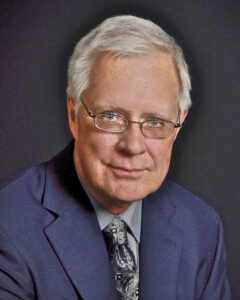By Greg Cusack
Guest column
This essay was prompted by patterns I discern from observation and careful reading:
- The truly toxic form of “masculinity” currently displayed by so many would-be “leaders.”
- The clear evidence that boys and young men are struggling to find aspirational role models.
- The alarming rise of anxiety and depression among girls and young women.
- The prevalence of suicide by drugs among non-college educated males.
- The amazing rise of so-called religious “nones” among young people.

Is there a common thread here? Oh, yes, I think so. We have become a bitterly divided nation where otherwise sane adults model the worst possible behavior. Disagreement no longer initiates a process of dialogue by which we can understand our differences and work together to find ways to bridge them. Nope. Now we just know that we are right and the other person is not just wrong, but most likely someone with foolish or loathsome values.
And should I wish to speak out via so-called “social media,” well, then, the only way to do that is with ugly, dismissive, raging and angry words that are not at all intended to rationally dispute or refute but, rather, to wound “the other” who is so clearly in the wrong.
Sadly, although there are bright spots like the Diocese of Davenport, the positions of so-called “religious leaders” are either supportive of or participants in such divisions — or else timidly quiet. Violence seems everywhere, our planet is burning and yet “zzzzz” is effectively the response of so many political and “religious leaders.”
The “Christianity” that fills the news these days is hardly very Christian and these views and words are definitely not those of Jesus. Heck, I’d walk away from that kind of “Christianity” too! The older I’ve become, the more concerned I am about our young people. What a future we have bequeathed them!
But my purpose in penning these thoughts is not to “grind my teeth in the darkness.” Rather, I wish to make a modest proposal: for the sake of our youths, recreate something like the Young Christian Student movement that so influenced my life as a high school student.
Central to YCS was training us to attempt to see the mind of Christ. YCS was a process in which students met weekly in groups of 10 to 12 and tried to identify current topical issues where they would: a) gather facts about the real situation; b) through the study of Jesus’ teachings assess how he might have viewed these facts and then c) undertake some form of action to help bring about a more Jesus-centric solution.
Note two other things about this: first, although it is a collective and cooperative effort, it serves to enhance the importance of each participant in a way that might positively contribute to the apparent lack of self-esteem that so many young people are suffering these days. Second, it empowers each participant by teaching them that their thoughts and actions are necessary if things are to get better. Moping around feeling helpless is no solution to anything.
Moreover, helping young people to think and see with the mind of Christ is one of the most cleansing ways I can think of to purge the vile language and evil thoughts that seem to be in the air we breathe these days. It will help them to recognize who among them is truly thinking and speaking with Jesus’ Way and, importantly, who is not.
One other suggestion I offer from my own youth that I think would help today’s young people (and like YCS, its instigator was Msgr. Marvin Mottet), is introducing the habit of daily praying with the larger Church.
In the summer between my junior and senior years in high school (1960), Msgr. Mottet gave several of us YCS participants “A Short Breviary,” a greatly condensed version of what the clergy are expected to pray each day. Although I progressed to the full four-volume breviary decades ago, that gift began first as a practice I had to internalize before it became an ingrained habit of the heart.
I offer this suggestion because, like the thought processes instilled in me by YCS, it also functioned as an important anchor throughout my life. It did not prevent me from making unwise choices, but it helped me always to come back. Given the incredible challenges facing our younger people today, they will need all the anchors they can get.
Both the study/action process of YCS and the prayer discipline instilled by the short breviary have remained vital throughout my life, and I think they — or something like them — might be of salvific value to our young today.
(Greg Cusack taught college, served on the Davenport City Council from 1969-73, and the Iowa House of Representatives from 1973-81. He then served as executive director of National Catholic Rural Life Conference from 1981 until late 1986. His public service continued in other areas until he retired as Chief Benefits Officer of the Iowa Public Employees Retirement System in 2004.)











